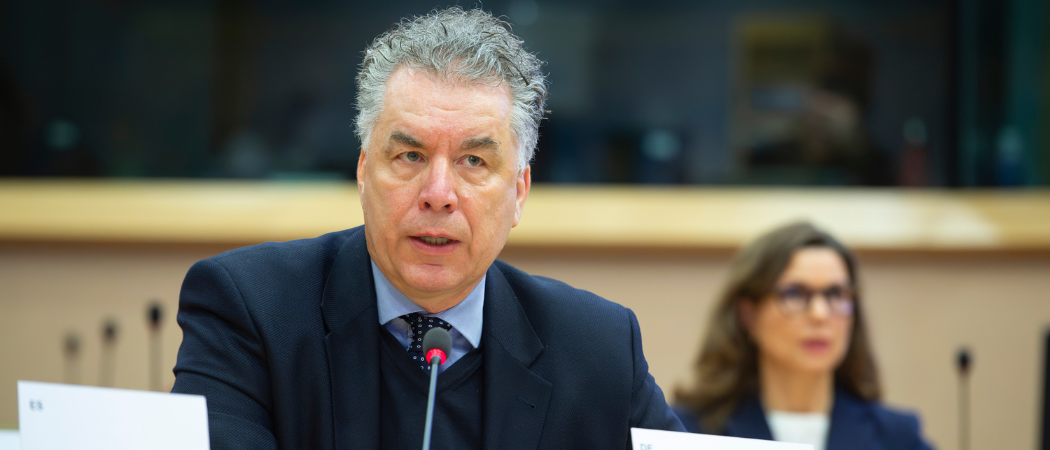Parliament’s Christian Ehler tells research stakeholders to stop expecting money to be handed down from on high and start fighting for €200B budget for Framework Programme 10

MEP Christian Ehler, a leading voice in the European Parliament on R&I policy. Photo: Eric Vidal / European Union
Leading MEP Christian Ehler called on research stakeholders to go out and lobby governments for an ambitious €200 billion for the next EU research programme, FP10, due to start in 2028.
“Get out of this moral superiority of the victim,” said Ehler. “This is a stakeholder community, which wasn't used to lobbying, because they thought, since the time of the Enlightenment, somehow, the princeps is donating something for research. This time is over.”
Times are tough, as economic uncertainty and wars at EU’s doorstep eat into governments’ increasingly tight budgets. Research isn’t an investment that quickly turns around progress, and it’s getting harder to convince policymakers to invest in it.
But more than ever, as EU’s competitiveness is challenged by global competition, that money is needed. The new EU research programme isn’t due to start for another four years, but the European Parliament and research stakeholders have already launched calls to double the current EU research budget to €200 billion in 2028.
The key question is who to lobby for more money. In the past, as Ehler noted during his intervention at the annual Science|Business conference this week, research ministers were the key architects of the EU’s research programmes. But now heads of state have all the say in how much money the EU puts where and, as a result, the scope of the framework programme.
Heads of state, therefore, are exactly whom the research community should lobby. Just last week, the EU Council of member states cut the current Horizon Europe research programme by €2.1 billion to finance other political priorities. “The leaders decide in the end,” Ehler said.
The way to sell it to them? Show them what Europe would be like without a strong focus on research and innovation. “Either, we have an argument pretty much to say you're going to mess up the European economy, you're going to mess up a global competition in terms of innovation, or we’re going to lose,” said Ehler.
He’s optimistic the EU could secure a bigger budget, especially if the governments are fearful about losing the global tech race.
But to do so, the research community needs a strong voice, and for now, leave internal disagreements over what the details of the programme should look like.
Universities and others involved in fundamental research are growing frustrated with the programme’s increasing focus on innovation and market-driven research, or high technology readiness (TRL) projects. For industry, the focus on high TRLs is good. But Ehler wants these arguments to be set aside for now and for there to be a joint fight for a bigger budget.
Plus, funding innovation and new tech through the framework programme makes it an easier sell for tech-hungry governments.
“If we get a bigger [budget] then we can discuss more deliberately about unfilled political ambition, the balance between basic and applied research and what we're doing with instruments like the European Innovation Council which are not traditional instruments of a research programme,” Ehler said. “That's why I think it's so important to have that general discussions with the heads of states.”





 A unique international forum for public research organisations and companies to connect their external engagement with strategic interests around their R&D system.
A unique international forum for public research organisations and companies to connect their external engagement with strategic interests around their R&D system.